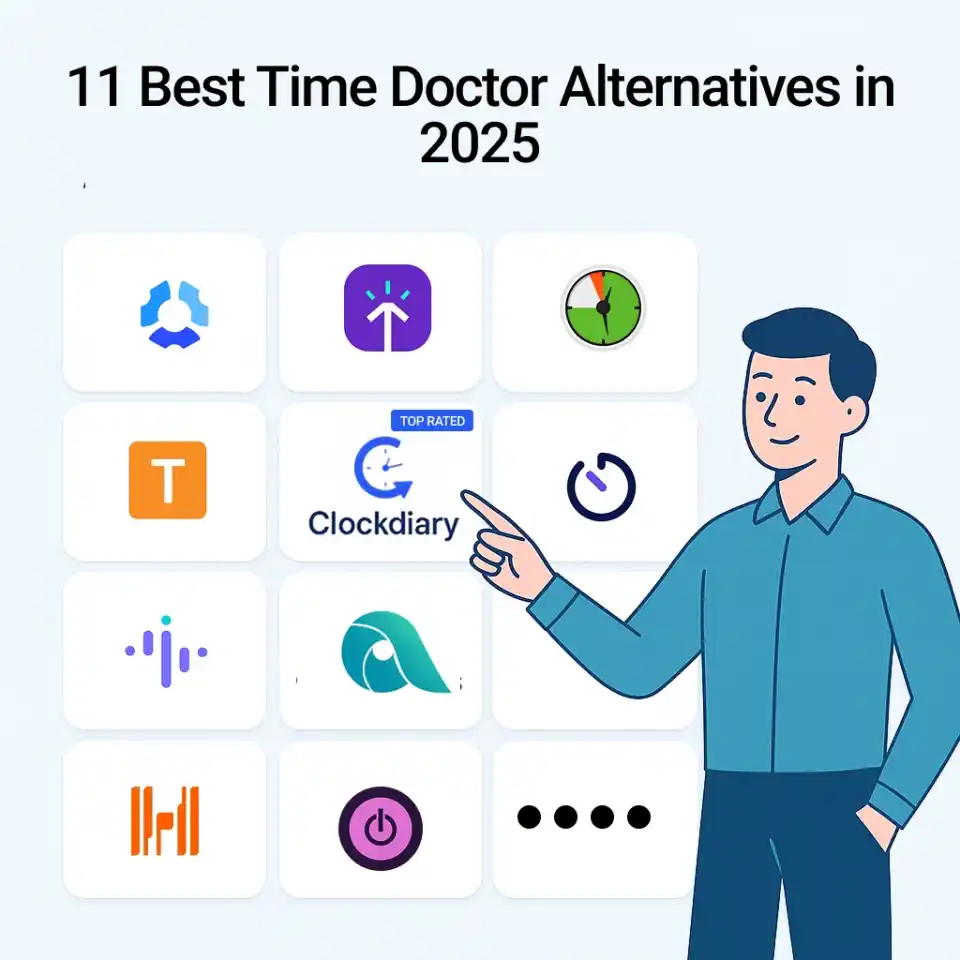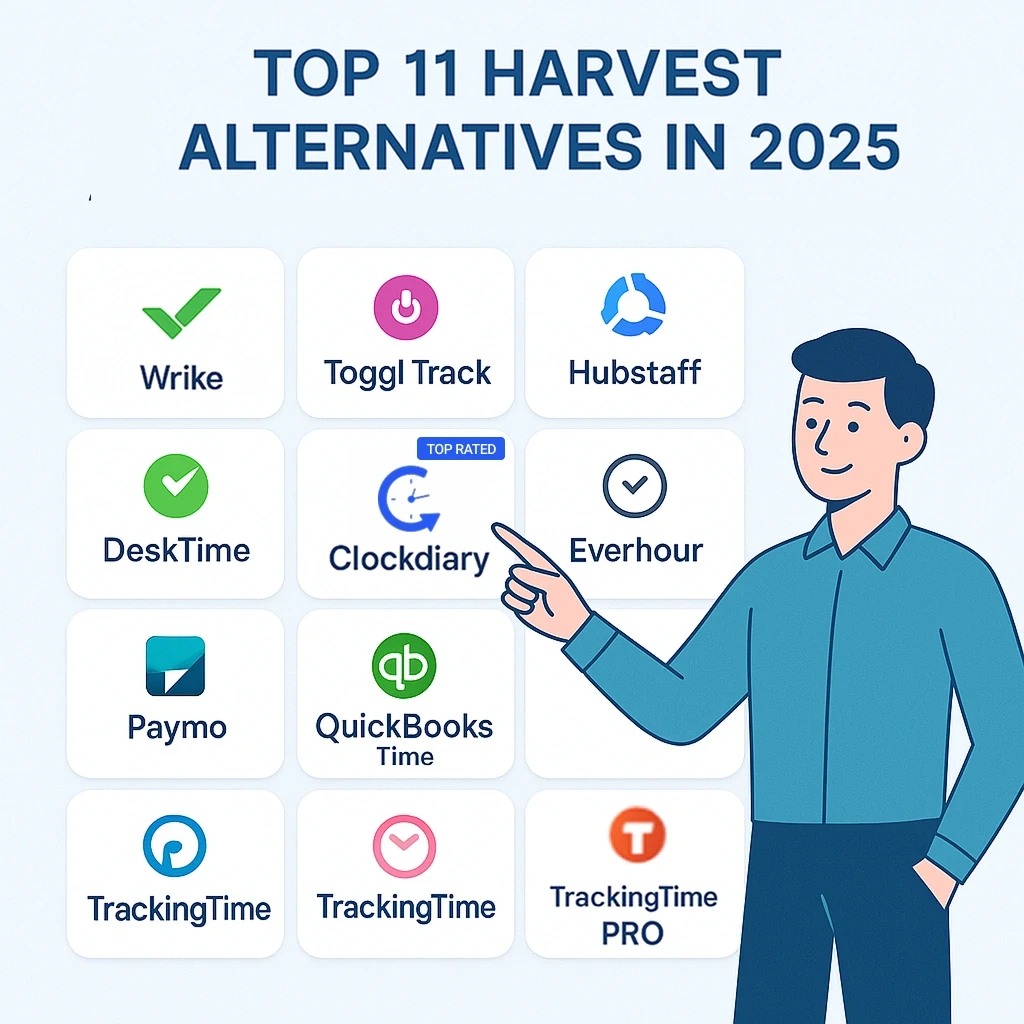In today’s fast-paced and increasingly digital work environment, the concept of time tracking has evolved significantly. The benefits of time tracking in modern work environments cannot be overstated. Far from being a mere tool for recording the number of hours worked, tracking time has emerged as a crucial element in enhancing overall workplace productivity and efficiency. It’s a strategic asset that goes beyond the basic functionality of clocking in and out, offering deep insights into work patterns, resource allocation, and project management.
With a shift towards more flexible work arrangements, including remote work and freelancing, time tracking has become essential in managing diverse teams and projects.
This blog post delves into these hidden benefits, revealing how time tracking can be a game-changer in various organizational roles, from freelancers and consultants to managers and team leaders.
Understanding Time Tracking: Unveiling Its True Essence
Time tracking, often perceived as a mere tool for recording work hours, transcends its basic definition to offer a plethora of hidden benefits. In this segment, we’ll explore the core concept of time tracking revealing its true potential in transforming work environments.
Definition and Basic Concept
At its core, time tracking is the process of recording the amount of time spent on various tasks or projects. This practice is integral to project management and employee productivity, serving as a cornerstone for efficient work management.
The Essence of Time Tracking
- Time Allocation: Understanding how time is spent on different tasks.
- Productivity Enhancement: Identifying areas where time can be utilized more effectively.
- Resource Management: Allocating time as a resource for project planning and execution.
- Billing and Payroll: Accurately calculating billable hours for client invoicing and employee compensation.
The Multifaceted Benefits of Time Tracking: More Than Just Clocking Hours
In the realm of modern work culture, time keeping has emerged as a pivotal tool, offering a spectrum of benefits that extend far beyond the simple act of recording hours. This comprehensive exploration delves into the multifaceted advantages of tracking time, highlighting its impact on employee focus, productivity, accountability, burnout prevention, and team management.
1. Increasing Employee Focus and Productivity
Time tracking is instrumental in boosting employee focus and productivity. It encourages a structured approach to the workday, allowing employees to allocate specific time slots to different tasks. This structure reduces the tendency to multitask, which is often a productivity killer. By logging their hours, employees gain valuable insights into their most productive periods, enabling them to schedule their most demanding tasks during these peak times.
For instance, a graphic designer might discover that their creative energy peaks in the morning. With this knowledge, they can schedule their design tasks during these hours, leading to more efficient and high-quality outputs.
2. Enhancing Accountability in the Workplace
Accountability in the workplace is significantly enhanced through time tracking. It brings transparency to work processes, allowing employees to demonstrate their commitment and enabling managers to gain a deeper understanding of team dynamics. This transparency ensures that employees’ daily tasks are aligned with the organization’s broader goals, making every hour spent at work more meaningful and goal-oriented.
For example, in a marketing department, time recording can reveal the amount of time spent on various campaigns. This data helps in identifying resource-intensive projects and understanding team members’ effectiveness, leading to more informed decisions about resource allocation and strategic planning.
3. Preventing Employee Burnout
One of the most significant benefits of time tracking is its role in preventing employee burnout. By monitoring employee work hours, it becomes easier to identify overburdened employees and to redistribute tasks accordingly. It also encourages regular breaks, which are crucial for maintaining mental health.
For instance, in a software development team, time tracking might reveal that some team members are consistently working overtime. This insight can lead to a redistribution of tasks and the implementation of mandatory breaks, helping to prevent burnout and maintain a healthy work-life balance.
4. Efficient Team Management and Collaboration
Time tracking facilitates effective team management and collaboration greatly. It provides a clear overview of who is working on what, enhancing coordination and collaboration within the team.
This data enables managers to allocate resources more effectively, ensuring tasks are assigned based on the time required and individual team members’ capacities.
In remote teams, for example, time tracking tools are invaluable for synchronizing tasks across different time zones, ensuring smooth progress on collaborative projects despite geographical distances.
Try Our Time Card Calculator for Accurate Results
Beyond the Clock: Strategic Benefits of Time Tracking
In the contemporary business landscape, time tracking transcends its traditional role of merely monitoring work hours. It unfolds into a strategic tool, pivotal for enhancing various aspects of business operations.
1. Improving Project Estimates and Client Billing
One of the most significant advantages of time tracking lies in its ability to refine project estimates and client billing practices. By meticulously recording the time spent on various project tasks, businesses can generate more accurate project estimates.
This precision is not only beneficial for internal project management but also plays a crucial role in client relations. Moreover, accurate estimates lead to transparent and trust-building client billing practices.
2. Optimizing Operational Efficiency
Operational efficiency is another realm where time tracking proves its worth. By analyzing time spent on different tasks and processes, businesses can identify bottlenecks and inefficiencies.
This insight enables streamlining of processes, ensuring completion of each task in the most efficient manner possible.
3. Resource Allocation and Budget Management
Effective resource allocation and budget management are critical for the success of any project.
Managers use time tracking to gain a clear picture of where and how resources are being utilized, enabling them to make informed decisions about resource allocation.
It also plays a crucial role in budget management. By keeping track of the time spent on different project components, managers can ensure that the project stays within budget.
Time Tracking for Different Organizational Roles
Time tracking, often pigeonholed as a tool for monitoring work hours, actually offers a plethora of benefits tailored to different organizational roles. From freelancers and consultants to managers, team leaders, and small business owners, time tracking serves as a versatile tool, adapting to varied professional needs.
Benefits for Freelancers and Consultants
Freelancers and consultants can leverage time tracking for accurate billing and time management, ensuring they are compensated fairly for their efforts.
- Accurate Billing: Ensures fair compensation for every minute of work.
- Efficient Work Management: Identifies time-consuming tasks, enabling better workflow management.
- Project Analysis: Provides insights for evaluating project engagements and improving time allocation.
Benefits for Managers and Team Leaders
Managers and team leaders can use time tracking data for employee performance evaluation and making informed decisions about task allocation and team workload.
- Team Performance Insights: Offers a clear view of individual work patterns for better team management.
- Resource Allocation: Facilitates effective distribution of tasks and resources.
- Enhanced Communication: Promotes transparency, aiding in setting realistic goals and expectations.
Benefits for Small Businesses and Startups
For small businesses and startups, time tracking is crucial for project cost tracking and work efficiency analysis. Also, it helps in managing limited resources effectively and drives growth.
- Budget Management: Crucial for monitoring project costs and staying within financial limits.
- Business Growth Insights: Helps in identifying profitable activities and areas needing more focus.
- Scalability: Supports growth by managing increasing workloads efficiently.
Wrapping Up: The Time Tracking Benefits
As we conclude our exploration of time tracking, it’s clear that this tool does so much more than just count hours. It’s like a secret key that unlocks a treasure chest of benefits – boosting productivity, building a sense of responsibility, and making our workdays more efficient. We’ve seen how time tracking can transform the way we work, turning every minute into an opportunity for improvement and growth.
In essence, time tracking isn’t just about keeping an eye on the clock; it’s about making every moment count. It’s a simple yet powerful way to bring out the best in ourselves and our teams. So, as we step forward, let’s carry the insights and advantages of time tracking with us, turning time into our most valuable ally in the journey towards success and fulfillment.
Take the Next Step with Clockdiary
Clockdiary is your go-to time tracking software for harnessing the full potential of time tracking in your organization. It’s designed to provide insightful data that can transform the way you work, enabling a more productive, efficient, and accountable work environment. Discover how Clockdiary can help you unlock the hidden benefits of time tracking and take your organizational efficiency to the next level.
Ready to make every second count? Start your time tracking adventure with Clockdiary and turn your hours into superpowers!


